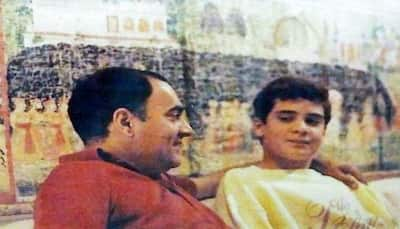New Delhi: Just hours before his assassination in a suicide bombing by the Liberation Tigers of Tamil Eelam (LTTE) on May 21, 1991, former Prime Minister Rajiv Gandhi eerily spoke of the dangers faced by powerful South Asian leaders. Little did then Prime Minister Rajiv Gandhi know that he would meet the same fate he had spoken of with eerie foresight.
In an interview before the tragic event, journalist Neena Gopal had asked him whether he believed his life was in danger. Rajiv, in response, posed a question of his own, “Have you ever noticed how, in South Asia, whenever a significant leader gains power or comes close to achieving something important for their country, they are brought down, attacked or killed? Look at Mrs. Indira Gandhi, Sheikh Mujibur Rahman, Zulfikar Ali Bhutto, Bandaranaike…”
According to Neena, just shortly after this conversation, he was assassinated. One of his most significant decisions as the prime minister was sending Indian armed forces to neighboring Sri Lanka to suppress the militant insurgency. This move was considered risky and major.
Rajiv was advised to take it by the Indian High Commission in Colombo, military commanders and intelligence agencies. During the operation, many Indian soldiers lost their lives, but the LTTE could not be completely subdued. Eventually, Indian forces were withdrawn, but by then, the LTTE had become Rajiv’s sworn enemy.
Several intercepted messages from the LTTE clearly expressed their intention to eliminate him. These intelligence inputs were picked up between April 1990 and May 1991.
Neena, in her book, quotes Colonel Hariharan, who had said that he was stunned when his team played him an LTTE cassette indicating a conspiracy to assassinate Rajiv.
Colonel Hariharan commanded a small Tamil army in Jaffna that monitored LTTE movements. Some of the intercepted messages included phrases like: “Rajiv Gandhi avarand mandalai addipodalam,” “dump pannidungo” and “maaranai vechidungo”. These Tamil phrases can be roughly translated into Hindi as: “Blow up Rajiv Gandhi” or “Finish him.”
Despite Rajiv’s own sense of foreboding and the intelligence agencies’ knowledge of LTTE’s intentions, there was a shocking lapse in his security. After the dramatic fall of the Chandrashekhar government in 1991, mid-term elections were announced. During that period, Rajiv was campaigning in Tamil Nadu.
It was the night of May 21. Around 10 pm, Rajiv arrived in Sriperumbudur, about 40 kilometers from Chennai. At that time, there was practically no security presence. Rajiv was quickly walking along a red carpet, accepting garlands from everyone.
Suddenly, he noticed a little girl named Kokila reciting a poem. She was also a member of the suicide squad. Rajiv stopped to listen to her. At that moment, Dhanu, the woman who would assassinate him, stepped forward with a sandalwood garland in hand.
Rajiv began to sense something was off. He gestured to Constable Anusuya to control the crowd. But before anything could be done, Dhanu bent down as if to touch Rajiv’s feet. At that moment, she triggered the explosive device strapped to her body. The device was packed with RDX, and the blast killed Rajiv Gandhi on the spot.
After his mother Indira Gandhi’s assassination, Rajiv became prime minister at just 40 years old, making him the youngest prime minister in India’s history and that record still remains unbroken. Upon becoming the prime minister, he immediately announced early general elections.
Riding a wave of public sympathy, the Congress party won a historic 414 out of 543 Lok Sabha seats. This was a feat neither his mother Indira nor his grandfather Jawaharlal Nehru ever achieved. No party has managed to break this record since.
During the massive celebration of the party’s victory, the 24 Akbar Road headquarters of the All India Congress Committee (AICC) was illuminated continuously for three days – a first and only in the party’s history.
Some contemporary historians believe that Rajiv Gandhi’s decision to unlock the gates at the Ram Janmabhoomi-Babri Masjid site was a move toward “soft Hindutva”. They suggest it was an attempt to recover from criticism over supporting conservative clerics in the Shah Bano case.
However, Wajahat Habibullah, an IAS officer from the Jammu and Kashmir cadre who served in the Prime Minister’s Office during Rajiv Gandhi’s tenure, later claimed in his book that Rajiv had no prior knowledge of the Babri Masjid–Ram Janmabhoomi locks being opened in February 1986.
In his memoir ‘My Years with Rajiv Gandhi: Triumph and Tragedy’, Habibullah wrote that when he asked the then prime minister if he was involved in the decision to unlock the gates, Rajiv responded firmly, “No. No government has the right to interfere in the management or affairs of religious places. I knew nothing about this incident until after the order was passed and implemented.”
Stay informed on all the , real-time updates, and follow all the important headlines in and on Zee News.








